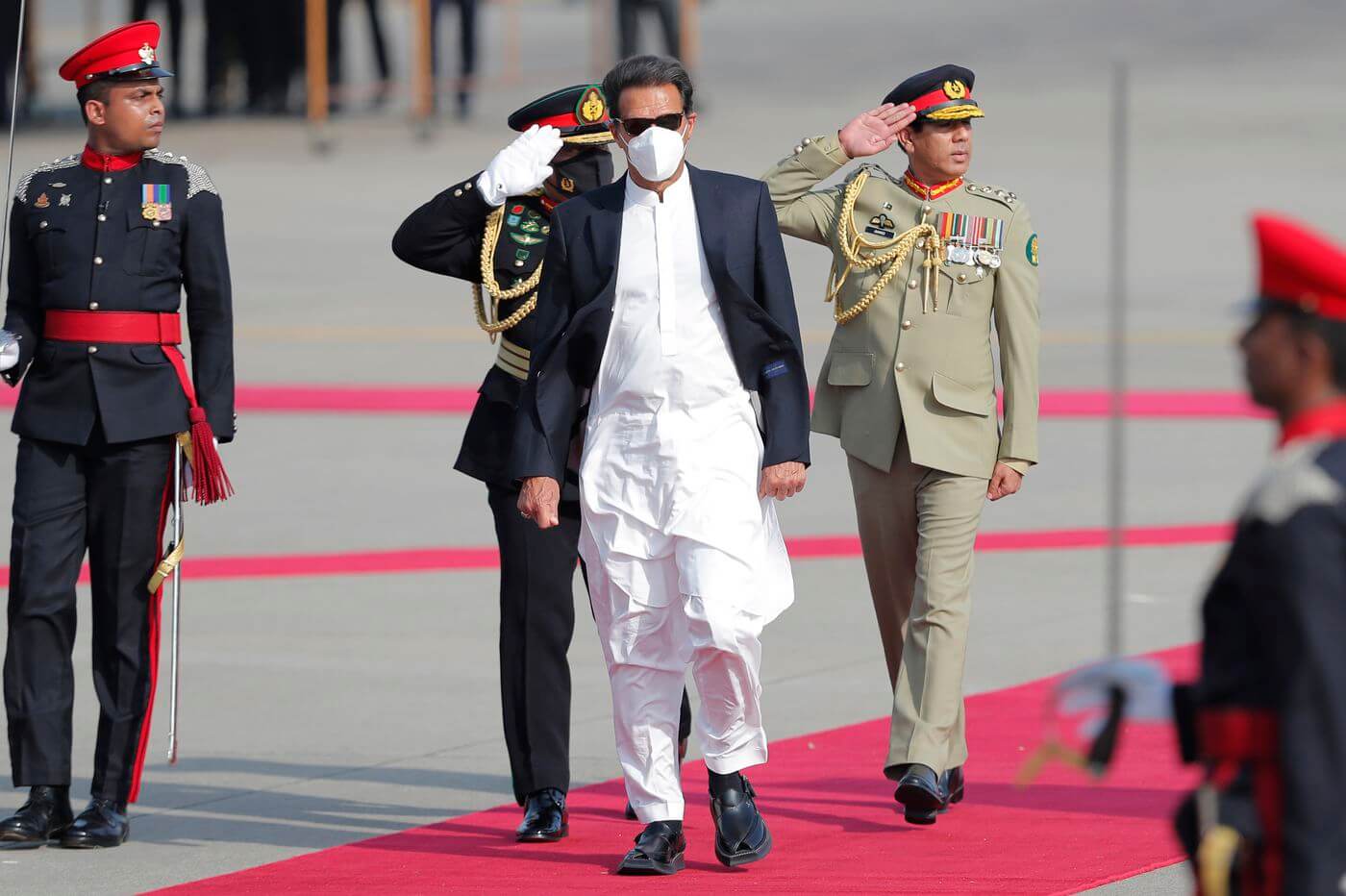On Wednesday, Pakistani Prime Minister Imran Khan concluded his two-day visit to Sri Lanka, making him the first Head of Government to visit the island nation since the onset of the COVID-19 pandemic. According to the joint statement released following the visit: “Both sides comprehensively reviewed the multifaceted bilateral relationship in diverse fields of cooperation.” This included promoting “cultural linkages, human resource development, and capacity building in diverse areas as well as educations and technical cooperation.” They further spoke of the need to “advance the shared objectives of peace, stability, and economic prosperity in South Asia.”
As a result of the discussions, Khan offered Sri Lanka a $50 million defence line of credit. In pursuance of this, the statement said, “The two sides stressed the need for stronger partnership for supporting and coordinating with each other in dealing with matters related to security, terrorism, organised crime and drug and narcotics trafficking as well as intelligence-sharing.” This comes just a few days after India made a similar offer for defence lines of credit to Maldives and Mauritius for $50 million and $100 million, respectively, indicating Pakistan’s desire to counter India’s expansion of its defence partnerships in the Indo-Pacific region.
Further, he called for the extension of the China-Pakistan Economic Corridor (CPEC). He said, “Pakistan is part of the One Belt and Road initiative of China, and CPEC is one of its flagship programmes. And it means connectivity.” In light of this, he urged Sri Lanka to enhance its participation in the project and offered it to use the Gwadar port to trade with China and Central Asia.
Apart from discussions on bolstering economic and defence ties, he spoke to Sri Lankan officials about enhancing the partnership on “trade and investment, health and education, and culture and tourism.”
During his visit, he also met with several Muslim leaders in the country. Following the discussion, Rauff Hakeem, the leader of the Sri Lankan Muslim Congress, celebrated the discussion as “pleasant and fruitful.” The Muslim community in Pakistan was looking forwards to Khan’s visit since its announcement. The President of the Muslim Council of Sri Lanka, N.M Ameen, said, “The community wishes to welcome a great Muslim leader who is coming as his country’s prime minister for the first time. He is in a vantage position to speak on behalf of the Sri Lankan Muslims.” In recent times, the Muslim community has been enraged about the Sri Lankan government’s refusal to allow Muslim victims of the pandemic to proceed with burials in accordance with their religious procedure. However, two weeks ago, the Sri Lankan government announced its decision to introduce a policy allowing members of the community to proceed with the burials, a decision which was celebrated by Khan himself. Nevertheless, no formal policy on the issue has been introduced yet.
On the last day of his visit, speaking at the Sri Lanka-Pakistan Trade and Investment Conference, which was co-chaired by Khan and his Sri Lankan counterpart Mahinda Rajapaksa, he raised the ongoing Kashmir conflict with India. He said, “Our only dispute is Kashmir, and it can only be resolved through dialogues.” He said that he had spoken with Indian Prime Minister Narendra Modi about the need to engage in dialogue to resolve the issue, an offer that was rejected by the Indian side. However, he said that Pakistan remained optimistic.
Khan’s statement comes as no shock for commentators in Sri Lanka, who were expecting the Kashmir issue to be brought up by him during his visit. This was in pursuance of Pakistan’s continued effort to garner international support for its position in the Kashmir conflict, specifically following the abrogation of the special status enjoyed by the state of Jammu and Kashmir in August 2019. In fact, this had even contributed to the Sri Lankan government’s decision to cancel his address at the country’s Parliament over fears of the possibility of such statements souring relations with India. While the official explanation of the decision continues to be COVID-19 related, several officials familiar with the issue said that the decision was made considering the implications of the Kashmir controversy being raised in his speech at the Parliament. Through the decades of conflict between India and Pakistan on the Kashmir issue, Sri Lanka has continued to maintain close relations with both rival nations and has refrained from commenting on the matter.
Pakistani PM Imran Khan Announces $50 Million Line of Credit During Sri Lanka Visit
During his visit to Sri Lanka, Pakistani Prime Minister Imran Khan spoke of enhancing cooperation in trade, defence, and counterterrorism.
February 25, 2021

SOURCE: PHILADELPHIA INQUIRER
